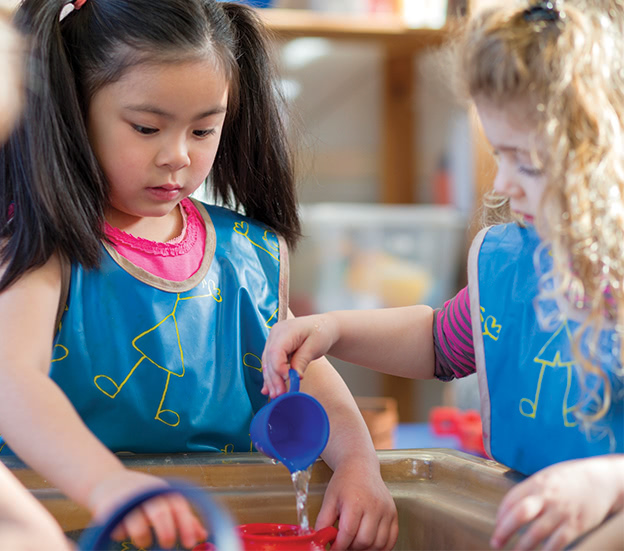
Section
Your Preschooler from 3 to 5 Years
Children ages 3 to 5 are learning many new skills. They tell stories, play games, and pretend. They run and climb. They start to learn letters and numbers. But they can have a hard time seeing things from someone else’s point of view. And they often think that make-believe TV and stories are real. Although your child may seem more grown-up now, she still needs your help and guidance.
Where to Find Help
Things You Can Do
Let Your Child Learn by Doing
Encourage hands-on learning rather than watching TV. Include your child in everyday tasks like cooking and cleaning.
Take her to interesting places, like museums and zoos.
Help her learn responsibility. For example, she can help pick up her toys, set the table, or sort the laundry.
Do Not Leave Young Children Home Alone
Most children are not safe by themselves until they are 11 or 12 years old. Even then, it depends on how long the child will be alone and how mature she is.
Get Ready for Preschool
Answer her questions with simple explanations.
Use blocks, big puzzles, and other toys to teach letters and numbers.
Sing alphabet and counting songs together.
Read and talk about stories with her.
Join in pretend play when your child asks you to.
Make sure your child has time to play with other children.
Ask a librarian or bookstore clerk to help you and your child choose books.
Use books to talk about difficult topics, like anger or sharing.
Encourage Creativity
Make a place for your child to play with chalk, crayons, markers, paints, and paper. Choose a place where she can make a mess.
Give her washable markers, chalk, or big crayons that are easy to hold.
Let her play dress-up with some of your old clothes. Look for sharp edges or choking risks on clothes, jewelry, belts, and purses.
Learning Social Skills
During play, children explore new feelings, ideas, and skills. They create make-believe stories and games. They are learning how to play with each other, how to relate to adults, and how to handle fear and anger. Talk to your child about what has happened during her day, and help her learn to get along with others.
Your Child’s Fears
Children may be afraid of strangers or being away from you. They may be afraid of dogs, loud noises, or the dark. They are more likely to be fearful when there is change or stress in their lives. They may have scary dreams. This is all normal. Let your child know that everyone is afraid at times and you will help keep her safe. Hold her and talk, read, or sing to her.
Feeding Preschoolers
Preschoolers should be eating the same meals as the rest of the family. Keep offering your child a variety of healthy foods. She may still have strong food likes and dislikes, and she may eat a lot one day and very little the next.
Portion sizes for preschoolers should be about half the size of adult portions. Start with a small helping and give her more if she asks.

Preschoolers like to use their hands and play pretend.